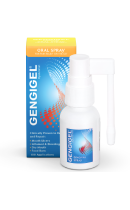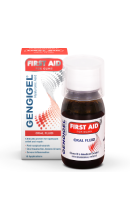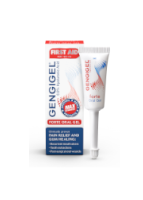Hormones and The Mouth
The impact of hormones on the mouth and gums
Women go through significant hormonal changes during their lifetime, from puberty, pregnancy, menopause, and post-menopause, with fluctuating hormone levels potentially impacting a women’s oral health at each stage.
Hormones affect both the blood supply to the gum tissue and the body’s response to inflammation. As a result of these changes, women are more prone to the development of periodontal disease at certain stages of their lives, as well as to other oral health problems.
Hormonal changes, particularly an increase in progesterone during the menstrual cycle can cause some women to experience swollen gums, swollen salivary glands, canker sores, ulcers, and bleeding gums, for a few days before the onset of their period.
Pregnancy
During pregnancy, a combination of hormonal changes and a prolonged, intense surge in blood flow, during the second trimester, can lead to plaque building up around the base of the tooth causing puffy and bleeding gums. This is known as pregnancy gingivitis and is experienced by up to 70% of women during their pregnancy. In most cases, these symptoms lessen shortly after the birth.
Menopause
The hormonal shift during perimenopause and menopause can lead to oral changes and symptoms such as altered taste, a burning sensation in the mouth, a greater sensitivity to hot and cold food and drinks, along with a decreased saliva flow which can result in dry mouth.
Saliva is our body’s natural cleansing agent, it moisturises the mouth and neutralises acid, reduced levels can allow bacteria to grow and in turn, cause tooth decay and gum disease.
Dry mouth can result in the development of periodontal disease because saliva is not available to moisten and cleanse the mouth by neutralising acids produced by plaque. Dry mouth can also be experienced as a side effect of many prescription and over-the-counter medicines.
How to protect your mouth teeth and gums?
- Clean your teeth carefully twice a day for 2 minutes with a toothpaste containing fluoride.
- Clean between your teeth with floss or interdental brushes, to help prevent the build-up of plaque.
- Spit, don’t rinse – after you have brushed your teeth, you should spit out the toothpaste. But don’t rinse your mouth out, or you will be washing away the fluoride needed to protect your teeth.
- Try to stick to 3 healthy balanced meals a day, avoiding sugar and snacking, (where possible)
- See your dentist and hygienist for regular checkups.
To manage and relieve symptoms
For gum symptoms such as bleeding gums, inflammation, burning, sensitivity, and dry mouth, use Gengigel Mouthrinse twice a day at a different time to brushing. This will coat your mouth, and reduce the inflammation, sensitivity, and discomfort. For particular areas of sensitivity or clusters of mouth ulcers Gengigel Gel can help.
 Buy Online
Buy Online







